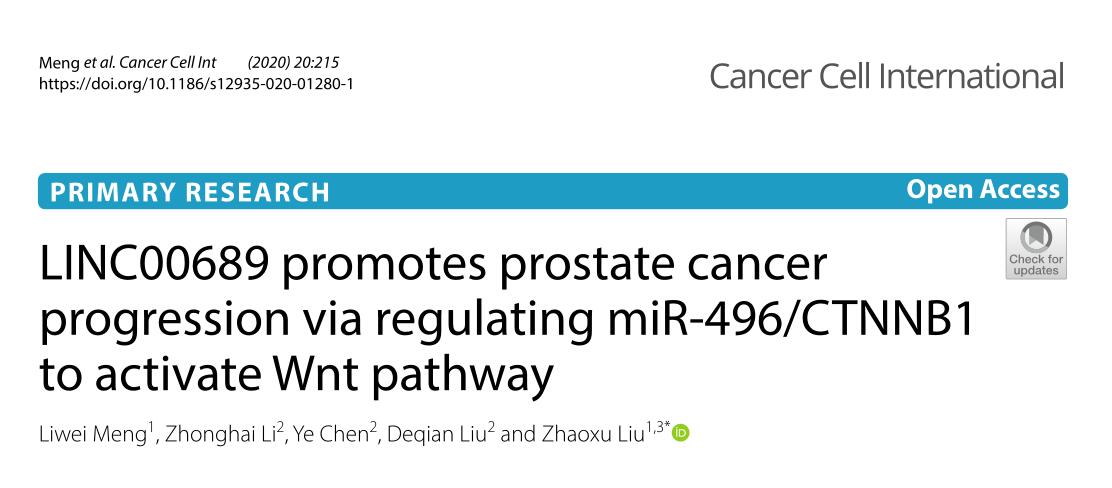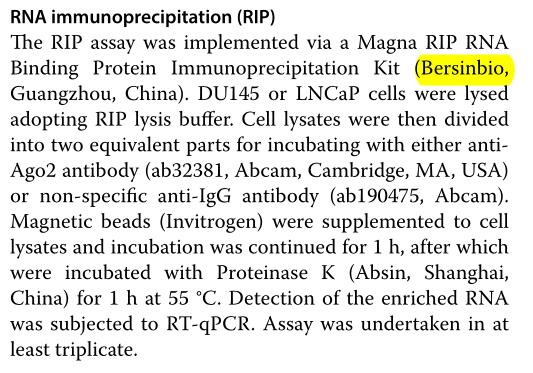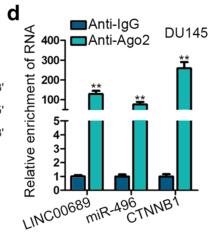
摘要
Background: Accumulating evidence has proved the significant influence of long non-coding RNAs (lncRNAs) in cancer formation and development, including PCa.
Methods: The role of LINC00689 in PCa was confirmed by RT-qPCR, MTT, colony formation, flow cytometry, western blot and transwell assays. Besides, the binding ability between LINC00689 and miR-496 was validated by using luciferase reporter assay. Then RT-qPCR, RIP and luciferase reporter and western blot assays were employed to verify the interactions among LINC00689, miR-496 and CTNNB1. Furthermore, the rescuing role of CTNNB1 in Wnt pathway was proved by RT-qPCR, TOP/FOP Flash and western blot assays.
Results: LINC00689 was upregulated in PCa tissues and cells as well as at the terminal stage. Further, knock down of LINC00689 repressed PCa cell proliferation, migration and invasion, and initiated PCa cell apoptosis. Additionally, miR-496 inhibitor and pcDNA3.1/CTNNB1 could neutralize the prohibitive effects of LINC00689 silencing on cell proliferation, migration and invasion, meanwhile, could offset the encouraging role of knocking down LINC00689 in cell apoptosis. Moreover, CTNNB1 upregulation exerted redemptive function in Wnt pathway inhibited by LINC00689 depletion.
Conclusions: To sum up, LINC00689 promotes PCa progression via regulating miR-496/CTNNB1 to activate Wnt pathway, which may contribute to research about new targets for PCa treatment.
Keywords: CTNNB1; LINC00689; Prostate cancer; Wnt pathway; miR-496.


伯信合作技术:RIP
原文链接:10.1186/s12935-020-01280-1




